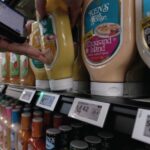
If it seemed that the effort to regulate digital coupons had died down after none of the recent state-level proposals succeeded, it doesn’t seem that way anymore. There are now several new and renewed legislative efforts to mandate that redeeming digital coupons at the grocery store be made easier – or automatic.
The newest proposed legislation is in Connecticut, making it the seventh state so far to have waded into the contentious issue of how and whether to give senior citizens, low-income shoppers or any other digitally-disconnected shoppers equal access to digital-only grocery coupons.
“Any grocery store that offers a digital coupon for a consumer good shall automatically apply such coupon to such consumer good if the consumer purchasing such consumer good is a senior citizen, or a member of a loyalty or rewards program offered or recognized by such grocery store,” the bill reads.
The bill was introduced by Democratic state Senate Majority Leader Bob Duff, who said he had seen media coverage of similar bills and learned more about the issue in conversation with a constituent. “Once we talked about it, I thought it was a good idea,” he told Coupons in the News. “It’s pretty simple and it would really make lives easier for some of our seniors.”
The measure is co-sponsored by House Republican Craig Fishbein. “Their coupons should be applied automatically,” he told Coupons in the News. “I think that makes sense.”
A separate but related bill, introduced by another Connecticut lawmaker, would require pharmacies in the state to “apply all available discounts or coupons for any prescription drug” and to notify customers of “any available prescription drug discount programs and generic prescription drug alternatives.”
An Illinois lawmaker, meanwhile, has revived an effort there to make digital coupons more accessible to more shoppers. A measure introduced in the last legislative session would have required a grocery store that offers a digital coupon to “make available a corresponding paper coupon” as an alternative. That version died before coming up for a vote.
So in the opening days of the new legislative session this year, Democratic state Representative Janet Yang Rohr has introduced a revised and expanded version. Her bill would also require grocery stores to offer paper versions of all digital coupons, and goes on to say those paper coupons “shall be easily accessible at the service desk and may also be placed in other locations around the store.”
The third state where a digital coupon bill is still alive is New Jersey. While similar bills in Massachusetts, New York, Rhode Island, Washington and Illinois (before the new version was introduced) all died when those states’ legislative sessions ended late last year, New Jersey’s legislature follows a different calendar. So its newest measure introduced last year, which states that anyone who “offers a digital coupon shall also make available to a consumer an in-store alternative,” is still actively under consideration and could still become law before the year is out.
New Jersey was the very first state to propose legislation to expand access to digital coupons during its last legislative session back in 2023. So the New Jersey and Illinois efforts are not brand new, while Connecticut’s is.
Over the past couple of years, as these various efforts to mandate how digital coupons are offered and applied have popped up, a number of grocery retailers have made a point of making their digital coupons more accessible to those without the technology or the know-how to use them. None, perhaps, more so than Connecticut-based Stop & Shop. Effective this month, all Stop & Shop stores in Connecticut and in the four other states where it does business will have in-store coupon kiosks, where shoppers without their own digital devices can download all of that week’s digital deals to their loyalty account.
“Designed to bridge the digital divide, this new in-store feature ensures that all customers, especially those who might not be tech-savvy or who do not have access to a smartphone, can easily access the same savings available through Stop & Shop’s digital offers,” Stop & Shop explained last month.
So it may seem curious that Connecticut would introduce a bill right now, to address the very problem that Connecticut’s largest grocery retailer claims it’s already solved. Duff says he’s open to feedback from Stop & Shop and other retailers as the bill moves forward. “That’s why we have public hearings and a process,” he said. “If we have to make modifications or changes, we can do that, based on what we hear from the grocery stores.”
It remains to be seen whether any of these currently-active bills have a greater chance of becoming law this time around, or whether they’ll meet the same fate as those that died last time around. Duff says he’s not troubled by the outcome of the other states’ efforts. “Every state’s different,” he said. “We’ll give it a shot and see what happens.”
So retailers may say they’ve solved the problem. And manufacturers who issue grocery coupons have said legislators’ proposed solutions could create their own problems. But the fact that the issue is still on lawmakers’ radar, shows that the debate over “digital discrimination” is far from settled.
Image source: Stop & Shop











Even when done ‘right’ digital coupons frequently fail. Classic bait and switch. Let’s return the law that requires product guven FREE if different than price on shelf.
This needs to be addressed. Digital coupons are blatant discrimination. The stores advertise the DIGITAL COUPON rice in big bold letters with yellow signs. The words digital coupon is very small and non digital coupon is also small on those signs That is misleading pricing. Blatant.
They are a high barrier to access and people should not need a username and password to get lower prices on necessities — food, produce, meat, etc. as well as toiletries. I don’t care if they do this on non necessities such as furniture, electronics, housewares, linens, clothing, etc. All those can be accessed in other ways. But you cannot by food and produce at a thrift store.
This is not marketing, This is out and out blatant discrimination and a high barrier to access and doing this on necessities is pure evil. Digital discrimination needs to be addressed. This is not marketing. Perhaps we need to revisit history when redlining was “marketing” done by lenders and real estate agents. It was wrong back then it is wrong now — this is DIGITAL REDLINING. Where digital coupons are not equal access. For a person to get a digital coupon they need a SMARTPHONE, or WIFI/INTERNET and a digital device such as a laptop or tablet. That is a huge barrier. Why the two levels of access in the first place if a person has a loyalty card and on top of that you also have to have a digital device? Digital access is not cheap by any means. Yet their signs in the store show the digital coupon price. How is that not misrepresentation? That is not marketing — that is bait and switch.
This needs to be addressed. Digital coupons are blatant discrimination. The stores advertise the DIGITAL COUPON rice in big bold letters with yellow signs. The words digital coupon is very small and non digital coupon is also small on those signs That is misleading pricing. Blatant.
They are a high barrier to access and people should not need a username and password to get lower prices on necessities — food, produce, meat, etc. as well as toiletries. I don’t care if they do this on non necessities such as furniture, electronics, housewares, linens, clothing, etc. All those can be accessed in other ways. But you cannot by food and produce at a thrift store.
This is not marketing, This is out and out blatant discrimination and a high barrier to access and doing this on necessities is pure evil. Digital discrimination needs to be addressed. This is not marketing. Perhaps we need to revisit history when redlining was “marketing” done by lenders and real estate agents. It was wrong back then it is wrong now — this is DIGITAL REDLINING. Where digital coupons are not equal access. For a person to get a digital coupon they need a SMARTPHONE, or WIFI/INTERNET and a digital device such as a laptop or tablet. That is a huge barrier. Why the two levels of access in the first place if a person has a loyalty card and on top of that you also have to have a digital device? Digital access is not cheap by any means. Yet their signs in the store show the digital coupon price. How is that not misrepresentation? That is not marketing — that is bait and switch.